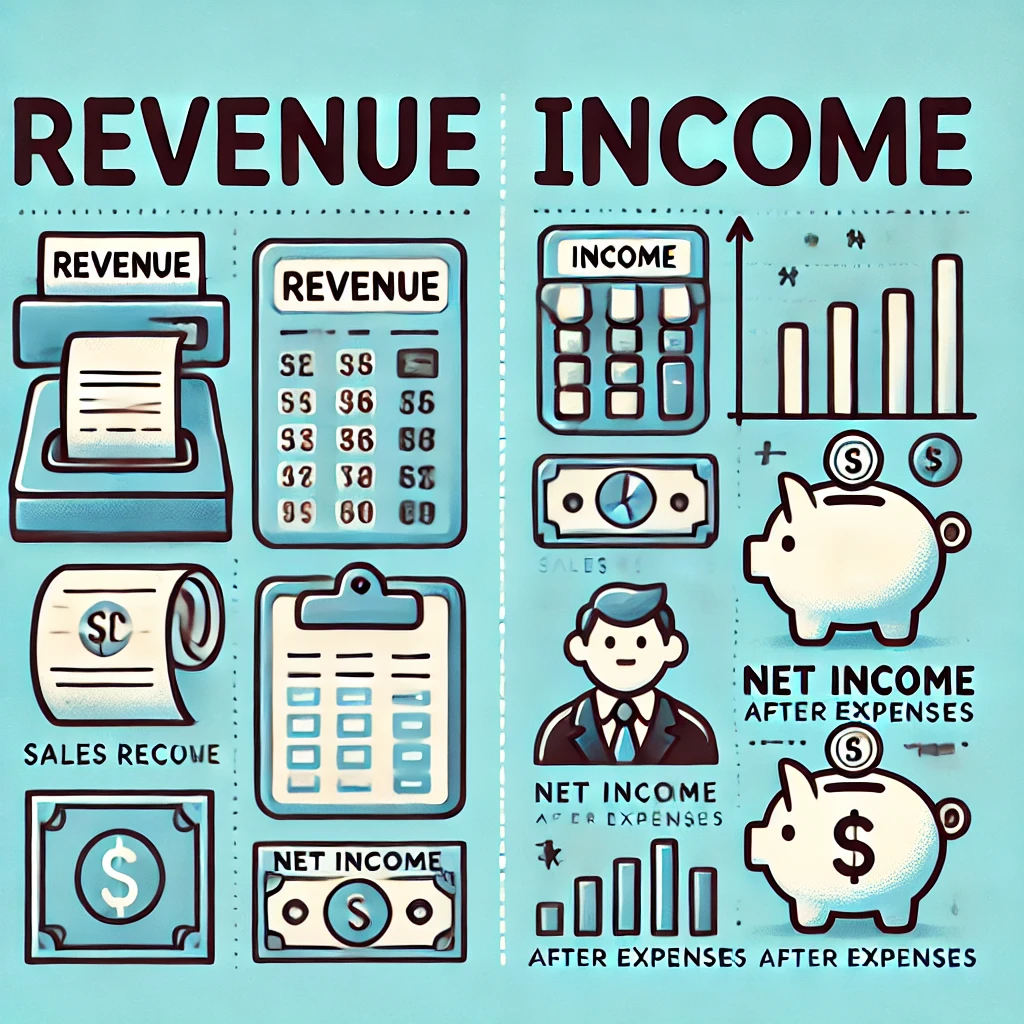Revenue and income are a key difference in accounting and finance at the basic level for conducting business analysis. These refer to financial performance, serving different purposes in reporting as well as analysis in business regarding such aspects as determining its ability to be financially healthy or not. This article, accordingly, explains the definitions and differences between revenue and income in financial decision-making concerning their importance.
To know how financially stable a company is, one has to know about revenue and income. Revenue is the amount of money the business receives through its key activities, including the sale of goods and services. Income is the profit remaining in the business’s pocket when all expenses, taxes, and costs have been deducted from revenue. This allows for the clear differentiation of revenue and income in the estimation of profitability and efficiency of operations.
What is Revenue?
Revenue essentially refers to sales or turnover, and it is the cash generated through a business’s primary operations minus all the costs accrued. This can be explained in simple terms as the total sales or service income over some period.
Sources of Revenue: Revenue typically comes from core business activities, like product sales, service fees, and interest from financial services.
Types of Revenue
- Operating Revenue: Income from core business operations (e.g., product sales).
- Non-operating Revenue: Income not directly related to core business activities, such as interest or dividends.
- Revenue Recognition Principle: Per accounting standards, revenue is recorded when earned, not necessarily when cash is received. This principle underlies accrual accounting.
What is Income?
Income, or net income/profit, is the profit left when all costs and expenses are subtracted from total revenue. It is one of the key measures in determining the profitability of any company.
Types of Income
- Gross Income: Revenue minus the cost of goods sold (COGS), showing initial profitability.
- Operating Income: Gross income minus operational expenses, reflecting core business performance.
- Net Income: Operating income minus all other expenses, taxes, and non-operational costs.
- Purpose: Net income determines shareholder dividends, investment opportunities, and financial strength.

Why the Difference Matters?
Understanding the difference between revenue and income is vital for investors, stakeholders, and business owners. Here are three reasons why this distinction matters:
- Evaluate Profitability: It shows revenue, or total earnings, while income is net profit. Thus, this gives an exact view of profitability after all expenses are subtracted.
- Improves Decision-Making: It enhances decision-making because separating revenue from income will enable management to understand efficiency in operations and areas to be controlled in costs.
- Financial Health Assessment: The metrics of revenue and income will together allow a company to understand growth and sustainability better.
By accurately assessing these metrics, stakeholders can identify trends, manage resources, and make informed financial decisions.
Revenue vs Income: Key Difference
The differences between revenue and income highlight their unique roles in business analysis. The table below presents a clear comparison:
| Aspect | Revenue | Income |
|---|---|---|
| Definition | Total earnings from primary business activities | Net profit after expenses |
| Calculation | Sales or service earnings | Revenue – Expenses |
| Purpose | Reflects total business earnings | Measures profitability |
| Type | Gross (Operating) Revenue | Net Income (Profit) |
| Importance | Indicates business volume | Shows financial health and profitability |
In conclusion, separating between revenue and income provides critical information to assess the state of a business’s finances. Revenue measures the volume of activities in business, but income measures profitability and effectiveness. Together, these figures will give a comprehensive understanding of financial performance, facilitating well-informed decisions on the part of stakeholders.
Revenue and Income FAQs
What is the primary difference between revenue and income?
Revenue is the total earnings from primary business activities, whereas income represents the profit after all expenses are deducted.
Why is income a better profitability measure than revenue?
Income accounts for all operational and non-operational expenses, providing a clearer picture of actual profitability.
Can revenue be higher than income?
Yes, revenue is typically higher because income is calculated after deducting all expenses from revenue.
Is operating income the same as revenue?
No, operating income is revenue minus operational expenses, providing insight into core business efficiency.
How do companies improve income without increasing revenue?
Companies can reduce costs, improve efficiency, and optimize tax strategies to enhance income independently of revenue increases.


